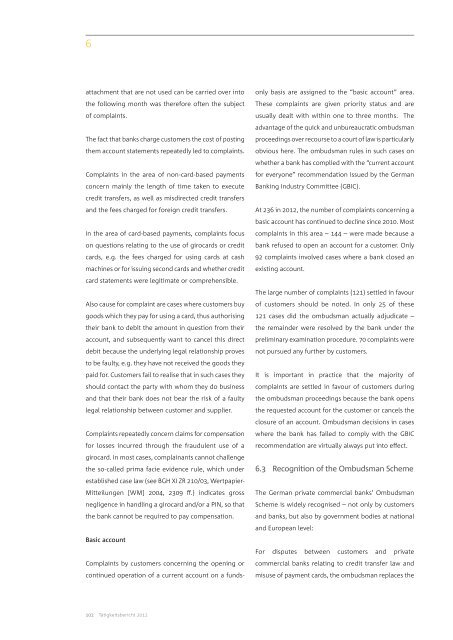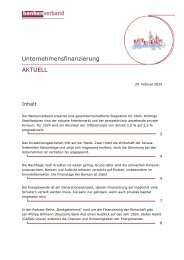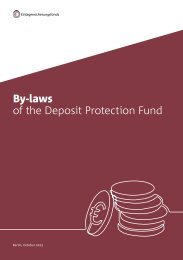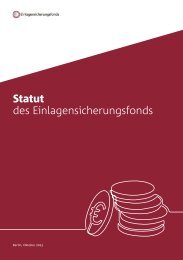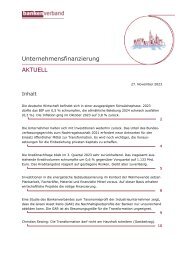Ombudsmann-Tätigkeitsbericht 2012
20 Jahre ist es her, dass der Ombudsmann der privaten Banken seine Tätigkeit aufgenommen hat. Die seither eingegangenen rund 70.000 Beschwerden haben eines gemeinsam: Sie zeigen auf, wo bei Verbrauchern im Bankgeschäft der "Schuh drückt". Ob Beschwerden im Zusammenhang mit "Schrottimmobilien", bei Wertpapieranlagen in der Finanzmarktkrise oder aktuell bei Bearbeitungsentgelten in Verbraucherdarlehensverträgen - stets spiegeln die Beschwerdeeingänge beim Ombudsmann aktuelle Anliegen, Interessen und Forderungen der Bankkunden wider. Beschäftigt hat die Verbraucher im Jahr 2012 - nicht zuletzt aufgrund eines starken Medieninteresses - die Frage der Zulässigkeit von Bearbeitungsentgelten bei Verbraucherdarlehen. Darüber hinaus rückt die europäische Dimension immer näher. Der Ombudsmann der privaten Banken sieht sich für die Umsetzung der neuen Brüsseler Regeln in deutsches Recht gut gerüstet. Er wird sich an der Umsetzungsdiskussion aktiv beteiligen.
20 Jahre ist es her, dass der Ombudsmann der privaten Banken seine Tätigkeit aufgenommen hat. Die seither eingegangenen rund 70.000 Beschwerden haben eines gemeinsam: Sie zeigen auf, wo bei Verbrauchern im Bankgeschäft der "Schuh drückt". Ob Beschwerden im Zusammenhang mit "Schrottimmobilien", bei Wertpapieranlagen in der Finanzmarktkrise oder aktuell bei Bearbeitungsentgelten in Verbraucherdarlehensverträgen - stets spiegeln die Beschwerdeeingänge beim Ombudsmann aktuelle Anliegen, Interessen und Forderungen der Bankkunden wider. Beschäftigt hat die Verbraucher im Jahr 2012 - nicht zuletzt aufgrund eines starken Medieninteresses - die Frage der Zulässigkeit von Bearbeitungsentgelten bei Verbraucherdarlehen. Darüber hinaus rückt die europäische Dimension immer näher. Der Ombudsmann der privaten Banken sieht sich für die Umsetzung der neuen Brüsseler Regeln in deutsches Recht gut gerüstet. Er wird sich an der Umsetzungsdiskussion aktiv beteiligen.
Sie wollen auch ein ePaper? Erhöhen Sie die Reichweite Ihrer Titel.
YUMPU macht aus Druck-PDFs automatisch weboptimierte ePaper, die Google liebt.
6<br />
attachment that are not used can be carried over into<br />
the following month was therefore often the subject<br />
of complaints.<br />
The fact that banks charge customers the cost of posting<br />
them account statements repeatedly led to complaints.<br />
Complaints in the area of non-card-based payments<br />
concern mainly the length of time taken to execute<br />
credit transfers, as well as misdirected credit transfers<br />
and the fees charged for foreign credit transfers.<br />
In the area of card-based payments, complaints focus<br />
on questions relating to the use of girocards or credit<br />
cards, e.g. the fees charged for using cards at cash<br />
machines or for issuing second cards and whether credit<br />
card statements were legitimate or comprehensible.<br />
Also cause for complaint are cases where customers buy<br />
goods which they pay for using a card, thus authorising<br />
their bank to debit the amount in question from their<br />
account, and subsequently want to cancel this direct<br />
debit because the underlying legal relationship proves<br />
to be faulty, e.g. they have not received the goods they<br />
paid for. Customers fail to realise that in such cases they<br />
should contact the party with whom they do business<br />
and that their bank does not bear the risk of a faulty<br />
legal relationship between customer and supplier.<br />
Complaints repeatedly concern claims for compensation<br />
for losses incurred through the fraudulent use of a<br />
girocard. In most cases, complainants cannot challenge<br />
the so-called prima facie evidence rule, which under<br />
established case law (see BGH XI ZR 210/03, Wertpapier-<br />
Mitteilungen [WM] 2004, 2309 ff.) indicates gross<br />
negligence in handling a girocard and/or a PIN, so that<br />
the bank cannot be required to pay compensation.<br />
Basic account<br />
Complaints by customers concerning the opening or<br />
continued operation of a current account on a funds-<br />
only basis are assigned to the “basic account” area.<br />
These complaints are given priority status and are<br />
usually dealt with within one to three months. The<br />
advantage of the quick and unbureaucratic ombudsman<br />
proceedings over recourse to a court of law is particularly<br />
obvious here. The ombudsman rules in such cases on<br />
whether a bank has complied with the “current account<br />
for everyone” recommendation issued by the German<br />
Banking Industry Committee (GBIC).<br />
At 236 in <strong>2012</strong>, the number of complaints concerning a<br />
basic account has continued to decline since 2010. Most<br />
complaints in this area – 144 – were made because a<br />
bank refused to open an account for a customer. Only<br />
92 complaints involved cases where a bank closed an<br />
existing account.<br />
The large number of complaints (121) settled in favour<br />
of customers should be noted. In only 25 of these<br />
121 cases did the ombudsman actually adjudicate –<br />
the remainder were resolved by the bank under the<br />
preliminary examination procedure. 70 complaints were<br />
not pursued any further by customers.<br />
It is important in practice that the majority of<br />
complaints are settled in favour of customers during<br />
the ombudsman proceedings because the bank opens<br />
the requested account for the customer or cancels the<br />
closure of an account. Ombudsman decisions in cases<br />
where the bank has failed to comply with the GBIC<br />
recommendation are virtually always put into effect.<br />
6.3 Recognition of the Ombudsman Scheme<br />
The German private commercial banks’ Ombudsman<br />
Scheme is widely recognised – not only by customers<br />
and banks, but also by government bodies at national<br />
and European level:<br />
For disputes between customers and private<br />
commercial banks relating to credit transfer law and<br />
misuse of payment cards, the ombudsman replaces the<br />
102 <strong>Tätigkeitsbericht</strong> <strong>2012</strong>


